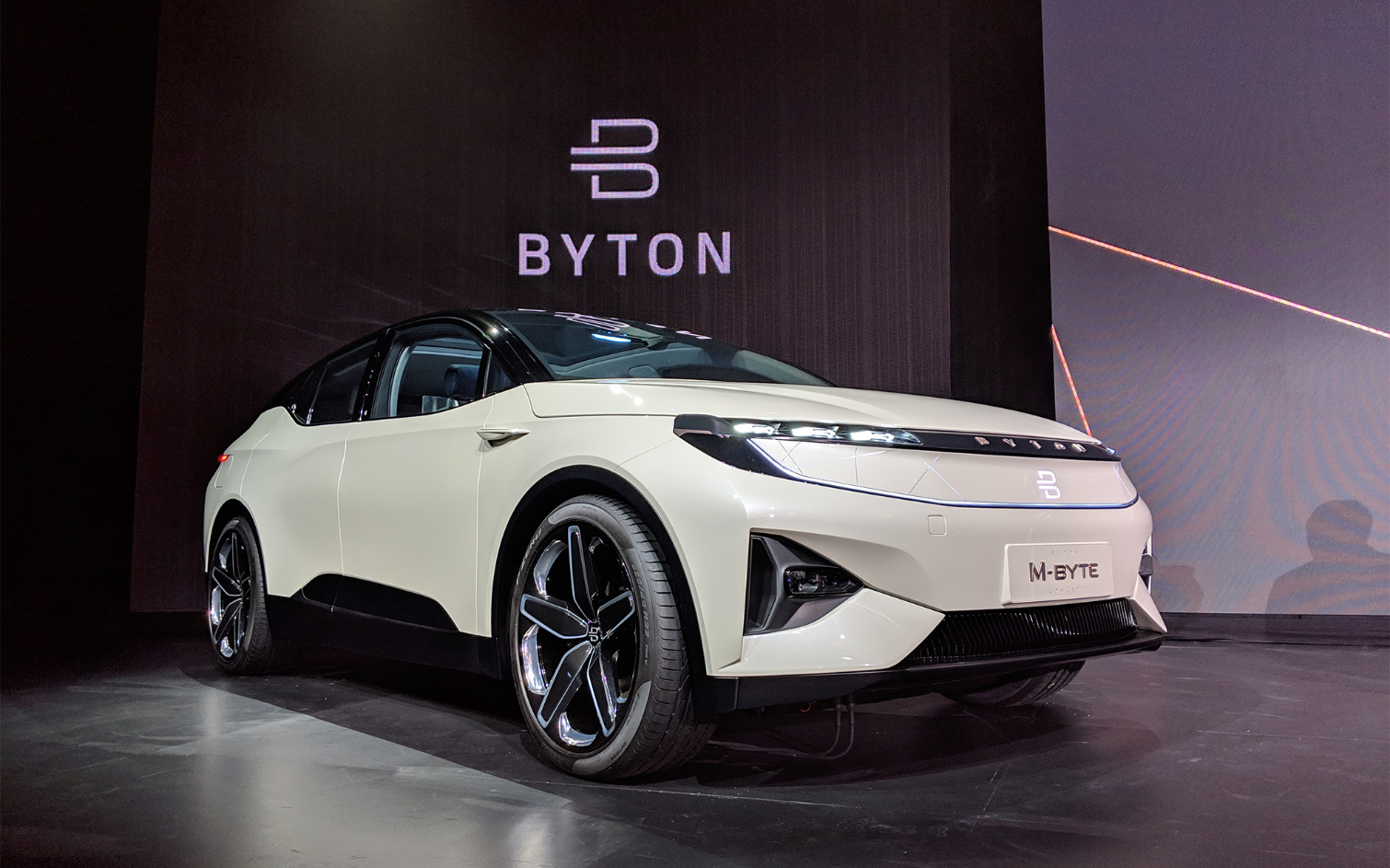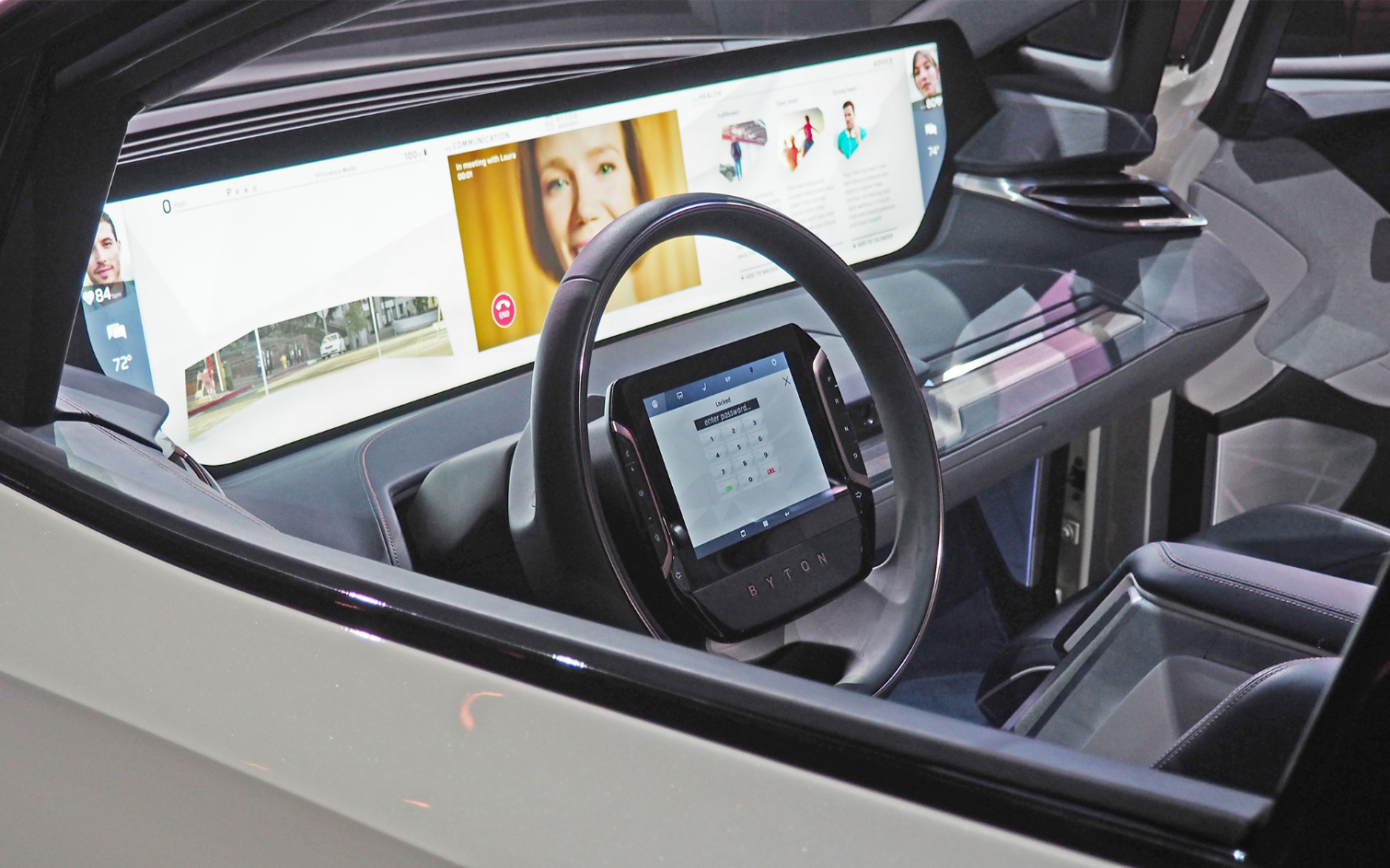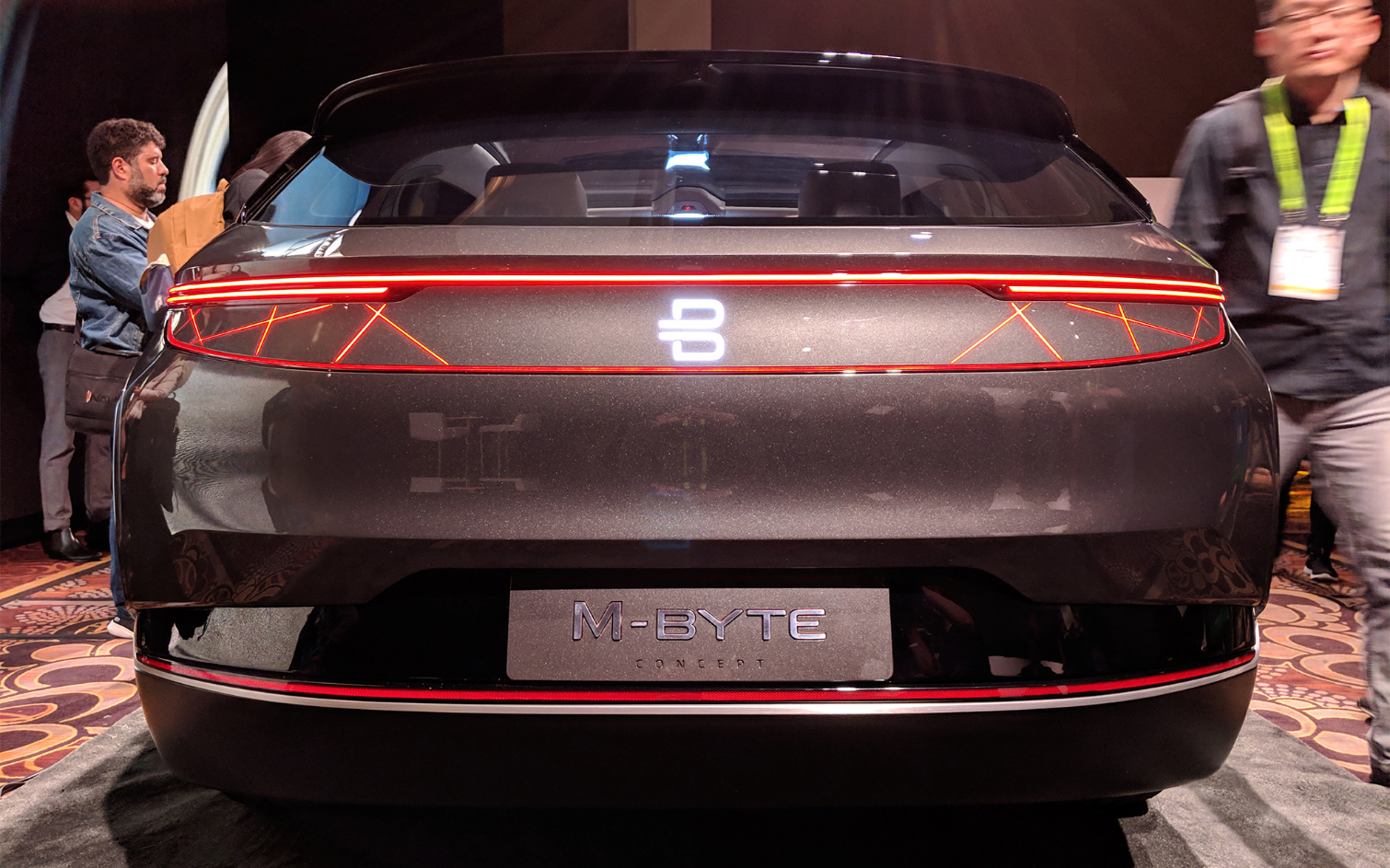Byton Wants to Be the iPhone of Electric Cars
With facial recognition, 4G connectivity, five touchscreens and fast electric charging, Byton's M-Byte may be more smartphone than car.
LAS VEGAS — If you really like cars, you might hate Byton. But that's OK.

Byton prefers to think of its all-electric, semi-autonomous vehicles as smart devices rather than automobiles. To an old gearhead, that's a sacrilegious thought. But to a generation that cherishes its phones and is snubbing car ownership in favor of ride-sharing, that attitude could pose a huge opportunity for the Chinese manufacturer.
"What really matters to the young generation of users is that they want the car to become a smart device," said Daniel Kirchert, president and co-founder of Byton, to Tom's Guide following the company's press conference here at CES 2019. "Of course, they're growing up, from childhood — the '90s generation — with smart devices. Time in the car is lost time, and they want to stay connected."
It makes sense, then, that Byton sees its M-Byte crossover as the car that will, once and for all, usher in the auto industry's "iPhone moment" — the product that changes the entire market and causes competitors to reconsider everything.
So it may come as little surprise that the M-Byte borrows more features from your smartphone than just about any other car. It's embedded with an array of 4G radios that happen to also be 5G ready. There's facial recognition — not just for the driver, but every passenger. And, of course, there's a whopping total of five touchscreens inside the cabin, one of which is 48 inches wide and spans the entire dashboard. That's probably more screens than cup holders.
MORE: The Best Electric Cars You Can Buy
To be honest, it all seems a little over the top. That's especially considering that Byton plans to put all of this, plus a fit-and-finish befitting more expensive marques, in a car expected to retail somewhere in the region of $45,000 — about the same as the cheapest Tesla.
Get instant access to breaking news, the hottest reviews, great deals and helpful tips.
"It won't be the fastest car on the market, because that's not our focus," Kirchert told Tom's Guide. "But it will, in terms of safety and quality, not be worse than any of the top German premium brands."

That's not all. Byton is also promising a fast-charging system that replenishes 80 percent of the vehicle's capacity in 30 minutes, along with Level 3 autonomy, which theoretically would make the vehicle capable of negotiating most driving scenarios without any driver involvement. All this in a car that we're told will start reaching Chinese buyers before the end of 2019.
Those would be lofty goals for even the most established of automakers. But Byton CEO Carsten Breitfeld — who headed up development of the BMW i8 electric sports car before co-founding Byton with Nissan and BMW vet Kirchert — believes the company is uniquely poised to meet those goals not in spite of its nascent background, but because of it.
"I would not only say it energizes us [to be a startup]," Breitfeld told Tom's Guide. "To do it from a blank piece of paper as a startup is an absolute precondition to make it happen."
Breitfeld believes that Byton's freedom as a new automaker, without dependencies on traditional technologies, allows it to advance so rapidly. Yet countless electric-car startups have folded in recent years, many of which had far less ambitious plans than Byton.
Faraday Future is often cited as a cautionary tale. And even Tesla — the one that miraculously made it — did so by exclusively selling an extremely-low-volume, six-figure sports car for a number of years until the economies of scale made a more mainstream model viable.

Although Byton may not be subject to the same obligations of a conglomerate like GM and Toyota, it will still face the same skepticism from consumers concerned about technology encroaching their on safety and security. (This doesn't mean Byton is operating on a shoestring budget, as it is backed by Chinese high-tech giants Tencent and Foxconn.)
The M-Byte encourages the collection of not only the driver's personal information, but that of anyone who sits in the car. It does this so people can carry profiles — containing apps, seating preferences and so on — from vehicle to vehicle.
But with all the ongoing controversies over irresponsible data gathering, mishandling and theft, I'm not so sure that marginal convenience for passengers is worth the potential public-relations risk. The company's executives lauded the skill of its security team on stage, but that kind of trust has to be earned first.
Likewise, Byton's trio of dashboard and steering-wheel touchscreens is otherworldly to behold, and truly the stuff of concept cars. However, placing a series of interactive displays into the driver's field of view seems a little counter-intuitive in the fight against distracted driving. The last thing Byton needs to do is invite public criticism over yet another arrogant, mysterious tech startup peddling gimmicky features at the expense of users' safety.
Byton is on the cusp of some major milestones. At its press conference, the company reconfirmed that the M-Byte is still on target to begin production near the end of the year. After that, the K-Byte, an electric sedan that is capable of more complete autonomy than the M-Byte, is planned for a 2021 launch. Kirchert tells us he hopes to add a 7-seater MPV to the mix in 2023.
As the weeks roll by and Byton inches ever closer to production, you get the sense they might actually pull all of this off. But if it really wants people to see its cars with the same enthusiasm they see their phones, it will have to tread lightly. It's surely made incredible progress in just two short years, but changing minds is one thing you can't rush.
Adam Ismail is a staff writer at Jalopnik and previously worked on Tom's Guide covering smartphones, car tech and gaming. His love for all things mobile began with the original Motorola Droid; since then he’s owned a variety of Android and iOS-powered handsets, refusing to stay loyal to one platform. His work has also appeared on Digital Trends and GTPlanet. When he’s not fiddling with the latest devices, he’s at an indie pop show, recording a podcast or playing Sega Dreamcast.
 Club Benefits
Club Benefits





